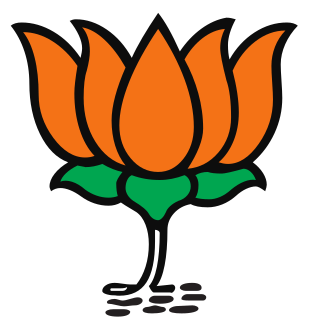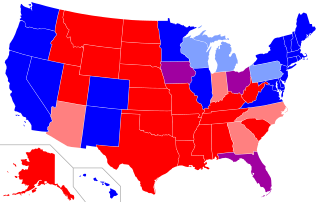| |||||||||||||||||
All 138 seats in the Chamber of Deputies 70 seats needed for a majority | |||||||||||||||||
|---|---|---|---|---|---|---|---|---|---|---|---|---|---|---|---|---|---|
| |||||||||||||||||
| |||||||||||||||||
 |
|---|
|
| Constitution |
Parliamentary elections were held in Iraq on 15 June 1948 to elect the members of the Chamber of Deputies. [1] The majority of seats were won by independents.
| |||||||||||||||||
All 138 seats in the Chamber of Deputies 70 seats needed for a majority | |||||||||||||||||
|---|---|---|---|---|---|---|---|---|---|---|---|---|---|---|---|---|---|
| |||||||||||||||||
| |||||||||||||||||
 |
|---|
|
| Constitution |
Parliamentary elections were held in Iraq on 15 June 1948 to elect the members of the Chamber of Deputies. [1] The majority of seats were won by independents.
| Party | Seats | |
|---|---|---|
| Iraqi Independence Party | 5 | |
| National Democratic Party | 2 | |
| Liberal Party | 1 | |
| Independents | 130 | |
| Total | 138 | |
| Source: Nohlen et al. | ||

An election is a formal group decision-making process by which a population chooses an individual or multiple individuals to hold public office.

The 2000 United States presidential election was the 54th quadrennial presidential election, held on Tuesday, November 7, 2000. Republican candidate George W. Bush, the governor of Texas and eldest son of the 41st president, George H. W. Bush, won the election, defeating incumbent Vice President Al Gore. It was the fourth of five American presidential elections, and the first since 1888, in which the winning candidate lost the popular vote, and is considered one of the closest elections in US history, with longstanding controversy surrounding the ultimate results.
The Conservative Party, officially the Conservative and Unionist Party, and also known colloquially as the Tories, is one of two main political parties in the United Kingdom, alongside its primary rival since the 1930s, the Labour Party. The Conservative Party is the current governing party in the United Kingdom, having won the 2019 general election with an overall majority in the House of Commons. The party is on the centre-right of the political spectrum, and encompasses various ideological factions including one-nation conservatives, Thatcherites, liberal conservatives and conservative liberals. The party currently has 357 Members of Parliament, 257 appointed members of the House of Lords, 9 members of the London Assembly, 31 members of the Scottish Parliament, 16 members of the Welsh Parliament, 4 directly elected mayors, 30 police and crime commissioners, and approximately 7,500 local authority councillors.

In the administrative divisions of France, the department is one of the three levels of government under the national level, between the administrative regions and the communes. Ninety-six departments are in metropolitan France, and five are overseas departments, which are also classified as overseas regions. Departments are further subdivided into 332 arrondissements, and these are divided into cantons. The last two levels of government have no autonomy; they are the basis of local organisation of police, fire departments and, sometimes, administration of elections.

The Bharatiya Janata Party is a political party in India, and one of the two major Indian political parties alongside the Indian National Congress. Since 2014, it has been the ruling political party in India under Narendra Modi, the incumbent Indian prime minister. The BJP is aligned with right-wing politics, and its policies have historically reflected a traditional Hindu nationalist ideology; it has close ideological and organisational links to the Rashtriya Swayamsevak Sangh (RSS). As of 17 February 2022, it is the country's largest political party in terms of representation in the Parliament of India as well as state legislatures.

The Indian National Congress (INC), colloquially the Congress Party but often simply the Congress, is a political party in India with widespread roots. Founded in 1885, it was the first modern nationalist movement to emerge in the British Empire in Asia and Africa. From the late 19th century, and especially after 1920, under the leadership of Mahatma Gandhi, the Congress became the principal leader of the Indian independence movement. The Congress led India to independence from the United Kingdom, and significantly influenced other anti-colonial nationalist movements in the British Empire. Due to its enduring history, the Congress is often called the "grand old party".

The 2008 United States presidential election was the 56th quadrennial presidential election, held on Tuesday, November 4, 2008. The Democratic ticket of Barack Obama, the junior senator from Illinois, and Joe Biden, the senior senator from Delaware, defeated the Republican ticket of John McCain, the senior senator from Arizona, and Sarah Palin, the governor of Alaska. Obama became the first African American to be elected to the presidency, as well as being only the third sitting United States senator elected president, joining Warren G. Harding and John F. Kennedy. Meanwhile, Biden became the first senator running mate of a senator elected president since Lyndon B. Johnson in the 1960 election.

The Communist Party of India (Marxist) is a communist political party in India. It is the largest communist party of India in terms of membership and electoral seats and one of the national parties of India. The party emerged from a split in the Communist Party of India (CPI) on 7 November 1964. As of 2022, CPI(M) is a part of ruling alliances in two states — the Left Democratic Front in Kerala and the Secular Progressive Alliance in Tamil Nadu. CPIM has representation in the legislative assemblies of 9 states.

Starting in the 2000 United States presidential election, the terms "red state" and "blue state" have referred to U.S. states whose voters predominantly vote for one party—the Republican Party in red states and the Democratic Party in blue states—in presidential and other statewide elections. Since then, the terms have expanded to differentiate between states perceived as conservative and those left-leaning and perceived as adhering to modern American liberalism. Examining patterns within states reveals that the reversal of the two parties' geographic bases has happened at the state level, but it is more complicated locally, with urban-rural divides associated with many of the largest changes.

The 2004 United States presidential election was the 55th quadrennial presidential election, held on Tuesday, November 2, 2004. The Republican ticket of incumbent President George W. Bush and his running mate incumbent Vice President Dick Cheney were elected to a second term, defeating the Democratic ticket of John Kerry, a United States senator from Massachusetts and his running mate John Edwards, a United States senator from North Carolina. At the time Bush's popular vote total was the most votes ever received by a presidential candidate, a total that has since been surpassed; additionally, Kerry's total was the second most. Bush also became the only incumbent president to win re-election after losing the popular vote in the previous election.

The 2005 United Kingdom general election was held on Thursday 5 May 2005, to elect 646 members to the House of Commons. The Labour Party, led by Tony Blair, won its third consecutive victory, with Blair becoming the second Labour leader after Harold Wilson to form three majority governments. However, its majority fell to 66 seats compared to the 167-seat majority it had won four years before. This was the first time the Labour Party had won a third consecutive election, and remains the party's most recent general election victory.
An independent or non-partisan politician is a politician not affiliated with any political party or bureaucratic association. There are numerous reasons why someone may stand for office as an independent.

Donald John Trump is an American politician, media personality and businessman who served as the 45th president of the United States from 2017 to 2021.
The Labour Party is a political party in the United Kingdom that has been described as an alliance of social democrats, democratic socialists and trade unionists. The Labour Party sits on the centre-left of the political spectrum. In all general elections since 1922, Labour has been either the governing party or the Official Opposition. There have been six Labour prime ministers and thirteen Labour ministries.

The 2012 United States presidential election was the 57th quadrennial presidential election, held on Tuesday, November 6, 2012. Incumbent Democratic President Barack Obama and his running mate, incumbent Vice President Joe Biden, were re-elected to a second term. They defeated the Republican ticket of businessman and former Governor Mitt Romney of Massachusetts and Representative Paul Ryan of Wisconsin.

The 2016 United States presidential election was the 58th quadrennial presidential election, held on Tuesday, November 8, 2016. The Republican ticket of businessman Donald Trump and Indiana governor Mike Pence defeated the Democratic ticket of former secretary of state Hillary Clinton and the United States senator from Virginia Tim Kaine, in what was considered one of the greatest upsets in American history. Trump took office as the 45th president, and Pence as the 48th vice president, on January 20, 2017. It was the fifth and most recent presidential election in which the winning candidate lost the popular vote. It was also the sixth and most recent presidential election in which both major party candidates were registered in the same home state, with the others being in 1860, 1904, 1920, 1940, and 1944.

The 2015 United Kingdom general election was held on Thursday, 7 May 2015 to elect 650 members to the House of Commons. It was the first and only general election held at the end of a Parliament under the Fixed-term Parliaments Act 2011. Local elections took place in most areas on the same day.

The 2019 United Kingdom general election was held on Thursday, 12 December 2019. It resulted in the Conservative Party receiving a landslide majority of 80 seats. The Conservatives made a net gain of 48 seats and won 43.6% of the popular vote – the highest percentage for any party since 1979.

The 2020 United States presidential election was the 59th quadrennial presidential election, held on Tuesday, November 3, 2020. The Democratic ticket of former vice president Joe Biden and the junior U.S. senator from California Kamala Harris defeated the incumbent Republican president Donald Trump and incumbent vice president Mike Pence. The election took place against the backdrop of the global COVID-19 pandemic and related recession. It was the first election since 1992, the first in the 21st century, and the fifth in the past century, in which the incumbent president failed to win a second term. The election saw the highest voter turnout by percentage since 1900, with each of the two main tickets receiving more than 74 million votes, surpassing Barack Obama's record of 69.5 million votes from 2008. Biden received more than 81 million votes, the most votes ever cast for a candidate in a U.S. presidential election.

The 2022 United States elections will be held on Tuesday, November 8, 2022. During this midterm election year, all 435 seats in the House of Representatives and 35 of the 100 seats in the Senate will be contested. Thirty-nine state and territorial gubernatorial and numerous other state and local elections will also be contested. This will be the first election affected by the redistricting that will follow the 2020 census.